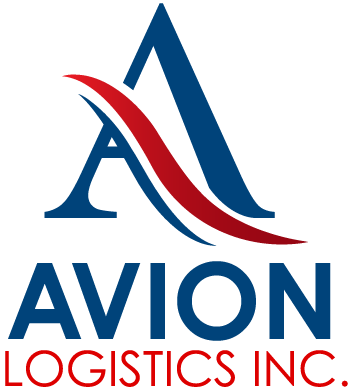
Fleet management has long been a complex juggling act—coordinating drivers, monitoring vehicle health, managing fuel consumption, and ensuring timely deliveries. But with the emergence of advanced GPS tracking systems, this once-daunting task is being transformed into a streamlined, data-driven operation. At Avion Logistics, we’ve seen firsthand how GPS technology is revolutionizing the way businesses manage their fleets.
In this article, we’ll explore the many ways GPS tracking is transforming fleet operations, improving efficiency, boosting safety, cutting costs, and enhancing customer satisfaction.
What is GPS Tracking in Fleet Management?
GPS (Global Positioning System) tracking involves using satellite technology to monitor the real-time location of vehicles. Fleet tracking systems collect a range of data, including speed, direction, idling time, route history, and more. This information is then sent to a centralized platform where fleet managers can analyze and make informed decisions.
Fleet tracking systems typically include:
- GPS-enabled devices installed in vehicles
- Cloud-based fleet management software
- Mobile access for real-time updates
- Integration with dispatch, maintenance, and reporting systems
The Core Benefits of GPS Tracking
1. Real-Time Vehicle Tracking
Real-time tracking gives fleet managers a bird’s-eye view of their entire operation. With GPS tracking, managers at Avion Logistics can monitor where every truck is, check if a delivery is running late, and reroute vehicles in case of traffic or roadblocks.
This improves:
- Visibility: No more blind spots in fleet movement.
- Control: Ability to take immediate action if something goes wrong.
- Coordination: Better synchronization between dispatch and drivers.
2. Improved Route Optimization
GPS tracking tools use live traffic data and historical route patterns to help drivers avoid congestion, roadwork, or accidents. Optimizing routes leads to:
- Shorter delivery times
- Reduced fuel consumption
- Less vehicle wear and tear
For a logistics company like Avion, route optimization directly translates into higher on-time delivery rates and happier clients.
3. Fuel Efficiency and Cost Reduction
Fuel is one of the highest operational costs in fleet management. GPS tracking helps reduce unnecessary fuel usage through:
- Monitoring and reducing engine idling
- Preventing unauthorized vehicle usage
- Optimizing routes for shorter travel times
According to industry data, companies using GPS tracking have reported fuel savings of up to 20%. For mid to large fleets, this can result in thousands of dollars saved annually.
4. Enhanced Driver Behavior Monitoring
Driver behavior is a critical factor in both safety and cost management. GPS tracking systems can detect:
- Speeding
- Hard braking
- Rapid acceleration
- Harsh cornering
- Excessive idling
By analyzing this data, fleet managers can identify unsafe or inefficient driving habits and provide coaching. Over time, this helps develop a safer, more responsible driving culture across the fleet.
At Avion Logistics, safety is a top priority. We use GPS data not only to correct poor behavior but also to reward drivers who consistently meet performance standards.
5. Better Maintenance Scheduling
Regular maintenance is essential to keep vehicles in peak condition and reduce costly breakdowns. GPS tracking systems often include vehicle diagnostics that monitor engine health, mileage, and other indicators.
Benefits of proactive maintenance:
- Extends vehicle life
- Prevents costly emergency repairs
- Ensures safety compliance
- Reduces downtime
Fleet managers can schedule preventive maintenance based on actual vehicle usage, not just arbitrary dates.
6. Improved Customer Service
In logistics, timely and accurate delivery updates are crucial for customer satisfaction. GPS tracking enables:
- Live delivery updates
- Accurate ETAs
- Immediate notification of delays or issues
Clients appreciate the transparency and reliability that GPS tracking brings. Avion Logistics clients, for example, benefit from real-time tracking links and proactive notifications, making logistics more predictable and trustworthy.
7. Increased Fleet Security
Vehicle theft and unauthorized use are serious concerns for logistics providers. GPS tracking acts as a powerful deterrent and recovery tool.
Security benefits include:
- Real-time location tracking to recover stolen assets
- Geofencing alerts when a vehicle leaves a designated area
- Engine shut-off or immobilization features (in some systems)
This added layer of protection is invaluable for high-value shipments or sensitive cargo.
8. Compliance and Reporting Made Easy
In regions where fleet operations are regulated, such as Hours of Service (HOS) requirements or emissions standards, GPS tracking systems can automate compliance reporting.
Key features:
- Electronic Logging Devices (ELDs) to monitor driver hours
- Automated fuel tax reporting (e.g., IFTA)
- Maintenance and inspection logs
Instead of juggling paperwork, fleet managers can generate reports with a click, reducing human error and audit risks.
Real-World Impact: How GPS Tracking Changed Avion Logistics
At Avion Logistics, we integrated GPS tracking into our fleet operations to improve efficiency and provide better service. The results were significant:
- Fuel costs dropped by 18% in the first year through better routing and reduced idling.
- On-time delivery rates increased by 25%, thanks to live tracking and dynamic dispatching.
- Customer satisfaction scores improved, with clients appreciating live updates and accurate delivery windows.
- Driver safety improved, with a 30% drop in unsafe driving incidents after implementing behavior monitoring and training.
These results demonstrate that GPS tracking isn’t just a luxury—it’s a necessity for modern fleet management.
Emerging Trends in GPS Fleet Tracking
Technology in fleet management is advancing rapidly. Here are a few innovations on the horizon:
1. AI and Predictive Analytics
AI is being used to forecast maintenance needs, optimize routes in real time, and predict driver fatigue or risky behavior before it happens.
2. Integration with IoT Devices
Connected sensors can monitor tire pressure, cargo temperature, or vehicle weight, adding layers of intelligence to GPS systems.
3. Dashcams and Video Telematics
Dashcams paired with GPS can provide visual context to driving behavior, incidents, or disputes. This is particularly helpful in insurance claims.
4. Mobile Fleet Management Apps
Modern GPS platforms offer powerful mobile apps for both drivers and managers, ensuring connectivity and control, even on the go.
The Future of Fleet Management is Data-Driven
As GPS tracking systems evolve, they’re becoming a central hub for fleet intelligence. Real-time data enables logistics companies like Avion to shift from reactive to proactive decision-making. This not only boosts profitability but also helps build trust with customers and maintain regulatory compliance.
Whether you’re managing a fleet of five or five hundred, the insights provided by GPS tracking can unlock a whole new level of control, accountability, and efficiency.
Final Thoughts
Fleet management is undergoing a digital transformation, and GPS tracking is at the heart of it. With benefits ranging from real-time tracking and cost savings to enhanced safety and customer service, it’s clear that GPS technology is no longer optional—it’s essential.
At Avion Logistics, we believe in staying ahead of the curve. By investing in state-of-the-art GPS tracking systems, we’re not just moving freight—we’re moving forward with innovation, precision, and purpose.


